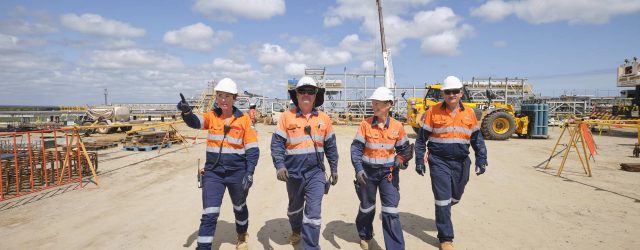View from the helm
Posted: 30th June 2021
Posted in: Blog

Posted: 30th June 2021
Posted in: Blog
The appointment was never part of my career master plan. I have been involved in the construction industry for over 30 years, undertaking commercial/contractual roles for major contractors, and it has always puzzled me that we find it so hard to make money. I don’t mean that flippantly. Setting aside all the great projects we construct and the good work we do in the community, if you actually analyse the numbers in Australia, our sector the nation’s third-largest that employs over a million people and accounts for approximately one-third of all registered businesses is a tale of boom and bust, of blowouts and litigation and of collapses and company failures.
In fact, the construction industry consistently has one of the highest rates of insolvencies in Australia and productivity growth over the last 30 years has trailed other significant industries by 25 per cent. Women make up only 12 per cent of the industry’s workforce and our workers are six times more likely to die from suicide than a workplace incident. Against this backdrop, attracting and retaining sufficient people to undertake the pipeline of work is a struggle.
For me, 2018 was the year I decided to try and do something for the industry that had been so good to me. So, I hung up my work boots and took up the part time role of CEO of the Queensland Major Contractors Association. I gave myself three years to achieve some positive change in my home State but two years into the role COVID hit and with it came an even bigger opportunity to achieve lasting reform—arguably a once in a generation opportunity.
Serendipitously, this coincided with the creation of a full-time CEO position at the Australian Constructors Association and, realising there was a limit to the change that could be driven from the Sunshine State, I threw my hat in the ring for the national role.
What have I learned in the role?
My first year has been non-stop. From working with other stakeholders to keep construction sites open to making the case for reform of how projects are procured and delivered, there has not been a quiet moment.
I have learned that, without exception, everyone wants to see a more sustainable construction industry. We all largely agree on the problems that need to be addressed to achieve this and we even agree on what needs to be done to fix them. We just need to find a way to fast track their implementation.
This is where I think the Federal Government has a role to play. They are uniquely placed to coordinate reform and have many reasons to do so, not least of which is the desire to see greatly improved productivity in our industry and the wider economy.
What have been my highlights?
Undoubtedly, the highlight of my first year in the role has been the opportunity to collaborate with passionate individuals who share a common desire to improve the industry. Working with my peers I am reminded why I joined this industry, an industry where there is no problem that cannot be overcome and an unshakable optimism in what the future holds.
What is next?
My sights are now firmly set on accelerating progress towards reform and strengthening the three pillars of a sustainable industry:
Achieving this will require collaboration between all levels of government and industry. Forums such as the Construction Industry Leadership Forum and Construction Industry Culture Taskforce will define best practice for government and industry right across the nation. An example is the soon to be released draft industry Culture Standard, and this is just the beginning.
I am also hopeful that the launch of the upcoming Australian Infrastructure Plan will provide a platform for Federal Government to coordinate and incentivise procurement reform by all levels of government.
Today, I feel even more passionate about the industry than when I first stepped into it as a quantity surveyor in the UK some 30 years ago. I strongly believe we have a great opportunity to achieve real and lasting reform of how projects are procured and delivered but this will only happen if we all get on board.
I hope I can count on your support in the year ahead.